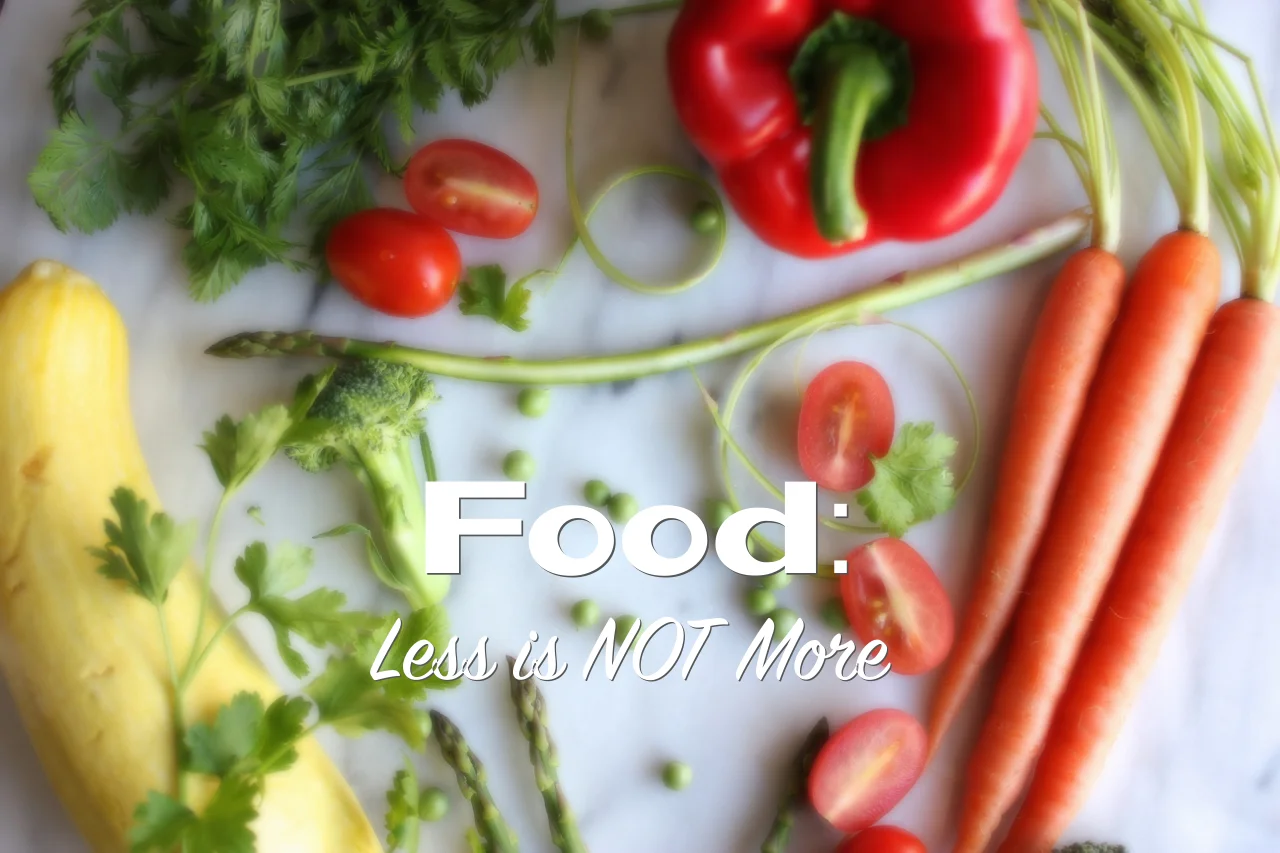Food for Fat Loss: Less is NOT More
As a trainer and nutrition coach, I frequently hear these inaccurate "facts" based in the worst antiquated weight-loss theory all the time: Calories in, Calories Out.
"Just eat less, move more and you'll lose weight."
"1200 calories a day and cardio at least 3x/week!"
"All my meals are under 500 calories!"
"Drink non-fat milk because it has less calories"
"Earned this donut after that spin class. My tracker says I burned 900 calories, so maybe 2 donuts!"
Le sigh. And then when an actual health expert says that it's not as simple as calories in, calories out, some internet troll comes stomping about, yapping about that guy who ate a Big Mac everyday for 30 days and lost weight.
This can be partly true- but there is a hugely importance difference in weight loss versus fat loss.
With both weight and fat loss though, there is a plethora of other factors that really matter much more than the simplified "energy in, energy out," like lifestyle choices, age, genetics, sleep, hormonal balances, stress, medical conditions, previous history of fitness/dieting, etc.
So many people simply reduce, reduce, reduce, in hopes that it'll help them achieve those last few stubborn pounds. But the body is a bit more complicated than a simple equation- and why would you want to be eating 1200 calories a day while living on a cardio machine? Unhappy, hangry, and tired is not a way to live.
*Personally at the moment, I'm more about embracing your now and/or figuring out why exactly that's your goal anyhow, but for this more informational article's purposes, let's continue.
While I could go into the nerdy science of it all, not all of you will make it through this article that way, so I'm simply leaving you with some logical food for thought (pun intended) that represent the real facts.
1. Burning both ends of a candle: Food & Workouts.
Your decrease in caloric intake = less energy fed to your body
This leads to---> Body slows down usage (think of the "Low Power Mode" on your iPhone) because the body is trying to conserve what it needs for more important things, like basic organ function.
This leads to --> Less energy you have to use to kill a workout like you normally would.
Which then = Output (your energy/calories "burned") not being as much as it used to be either.
So that whole "reduce calories, increase exercise" takes its toll on your body if not done in a balanced, gradual, smart way. You're burning from both ends of the candle, and that leads to burnout, fast.
2. Less leads to needing less.
Your body is an incredibly adaptive machine.
Consistently feed it a whopping 400 calories less per day might result in some immediate pounds lost on the scale (this will NOT be pure fat loss, by the way- mostly water due to your body treating it's glycogen/energy stores and input differently), your body will quickly realize what you're doing and it'll learn to survive on the reduced food you're giving it by cutting corners.
Aka halting fat loss, because your body's first and foremost priority is survival- it does not care that bikini season is around the corner and you can pinch more than you care to around your tummy. It cares about supporting your organs and delivering the nutrients your body needs to function. So fat loss is put on the backburner, which is exactly the opposite of your intention.
3. Protein and muscle are your best friends. We want MORE.
It's simple. The more muscle mass you have, the more energy you have to use. Your muscle tissue asks for a lot of energy when recovering from your workouts, and each pound of muscle uses about 5-6 calories at rest per day-- as opposed to fat, which, you guessed it, does nothing.
How do you maintain that muscle while working towards fat loss? Strength training and adequate protein intake are key. Protein is vital to growth and recovery of muscle tissue, which we want for the aforementioned reasons above. Out of the macronutrients, protein also uses the most energy in your body to digest and use it. Swap out 50g of protein for 50g of carb in a day, and you'll burn ~50 calories more per day. Which equals 350 calories in a week. If we're equating things simply in calories here, that's a donut. Or an entire pound of pure fat in 10 weeks of this simple swap.

